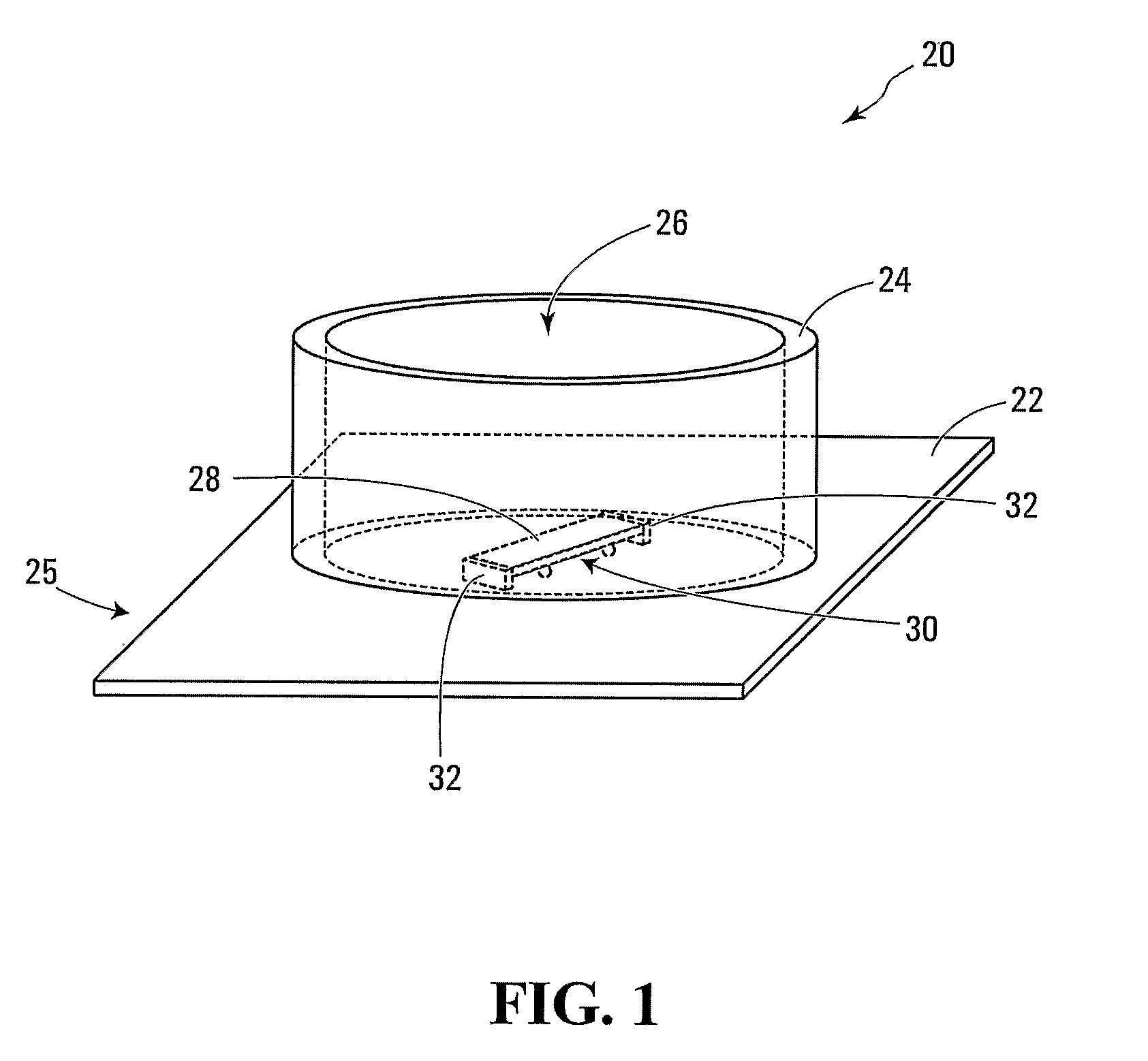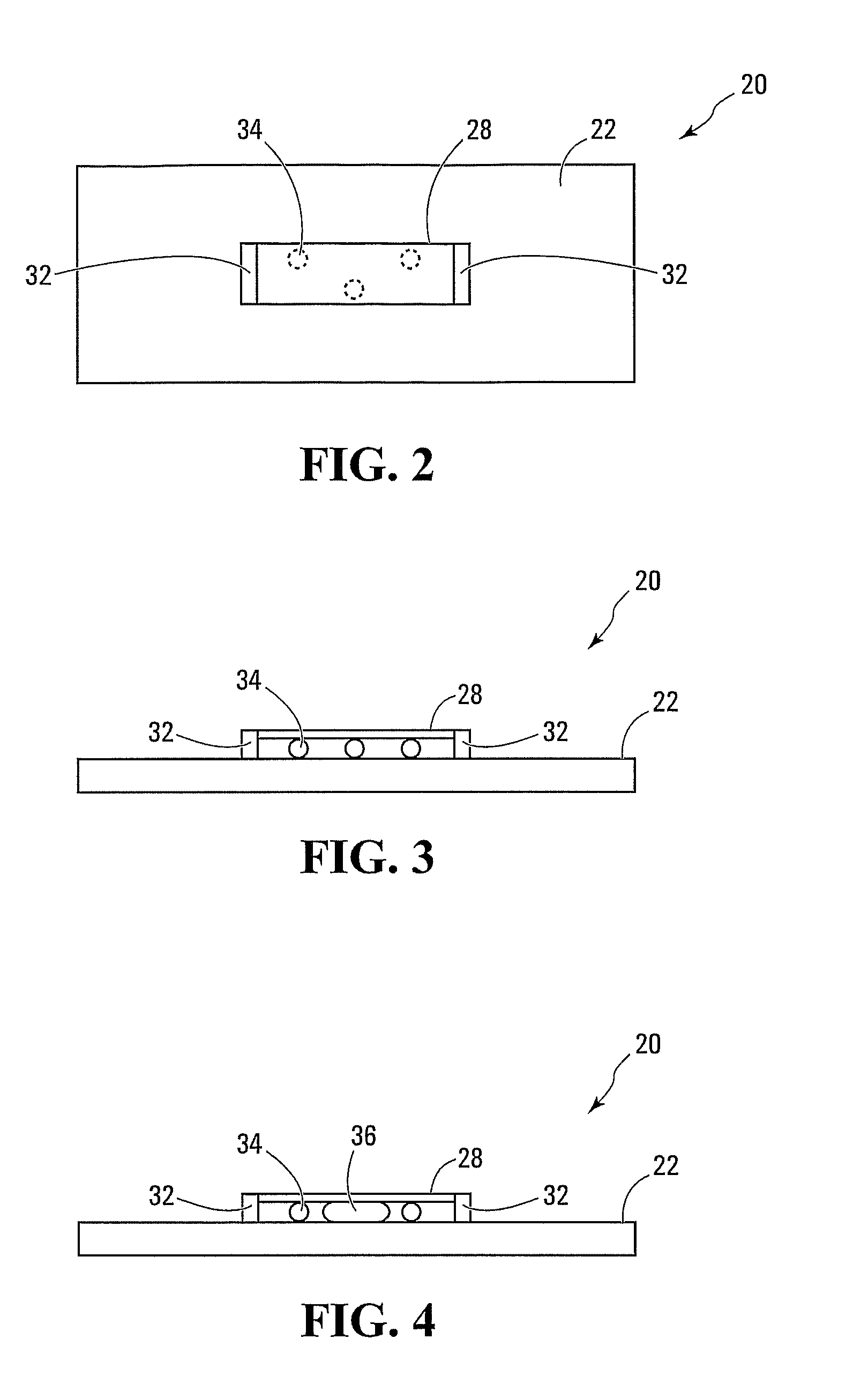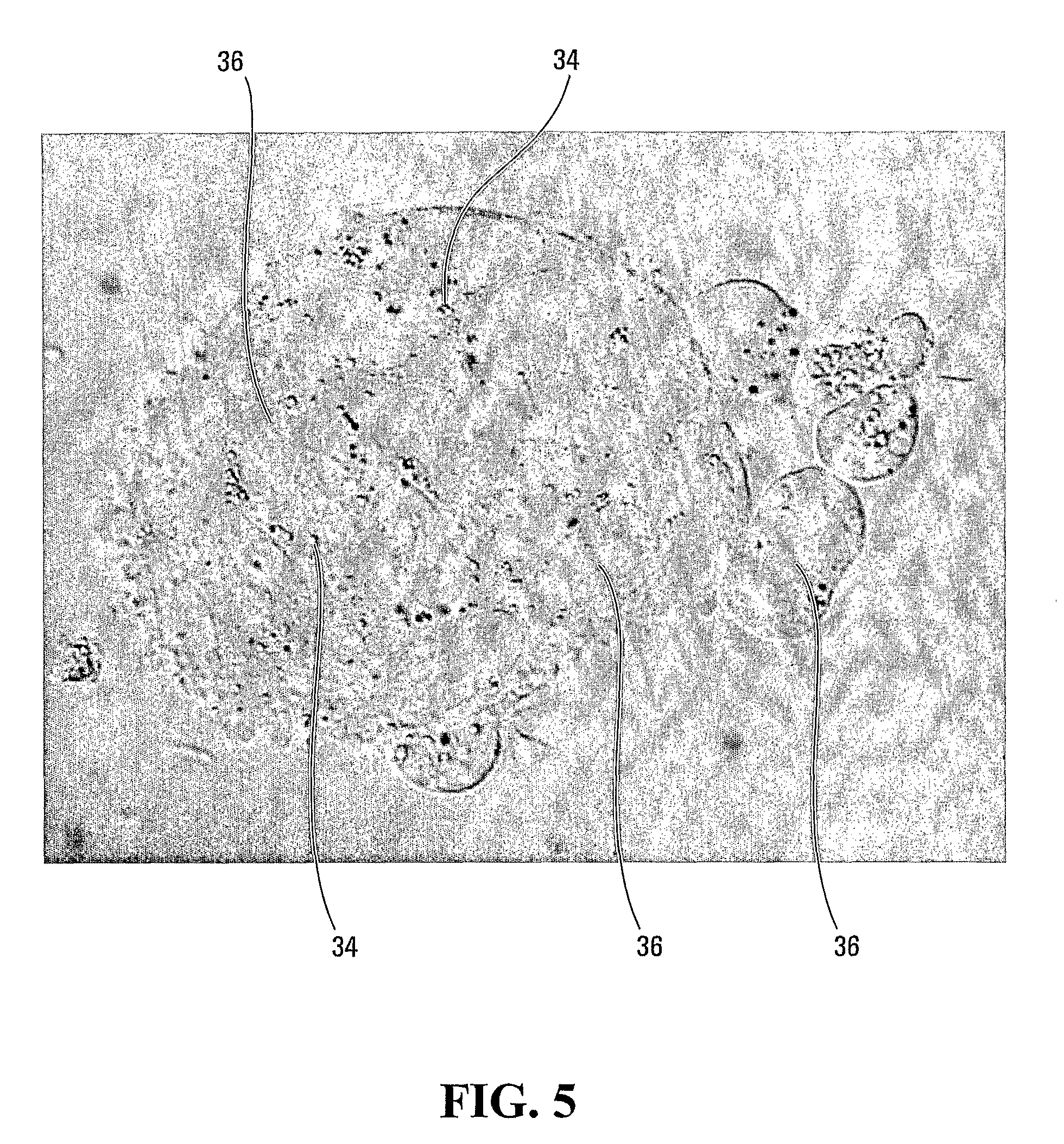Cultured cell and method and apparatus for cell culture
a cell culture and cell technology, applied in the field of cell culture, can solve the problems of limited number of cells surrounding the cell to permit control of the cell properties, and achieve the effect of facilitating direct observation of cell growth and significant improvement of image quality
- Summary
- Abstract
- Description
- Claims
- Application Information
AI Technical Summary
Benefits of technology
Problems solved by technology
Method used
Image
Examples
Embodiment Construction
[0045]The inventors have discovered that cell culture in vitro can be advantageously controlled by controlling the microenvironment of individual cells in a culture chamber. A cell's microenvironment is the local environment surrounding a cell or the immediate vicinity of a cell, also known as a niche. In this invention, the in vivo biological environment is referred to as the “natural niche” or interchangeably the “biological niche” and the in vitro micro-environment in cell culture is referred to as an “artificial niche”.
[0046]The inventors have identified certain aspects of an artificial niche of a cell that can and may need to be controlled in order for the artificial niche to mimic the biological niche. One such aspect is the size and shape of the artificial niche as defined, at least in part, by neighbouring objects in contact with the cell; another aspect is the physical and / or chemical characteristics or properties of the surfaces that surround a cell to form an artificial n...
PUM
| Property | Measurement | Unit |
|---|---|---|
| time | aaaaa | aaaaa |
| distance | aaaaa | aaaaa |
| distance | aaaaa | aaaaa |
Abstract
Description
Claims
Application Information
 Login to View More
Login to View More - R&D
- Intellectual Property
- Life Sciences
- Materials
- Tech Scout
- Unparalleled Data Quality
- Higher Quality Content
- 60% Fewer Hallucinations
Browse by: Latest US Patents, China's latest patents, Technical Efficacy Thesaurus, Application Domain, Technology Topic, Popular Technical Reports.
© 2025 PatSnap. All rights reserved.Legal|Privacy policy|Modern Slavery Act Transparency Statement|Sitemap|About US| Contact US: help@patsnap.com



